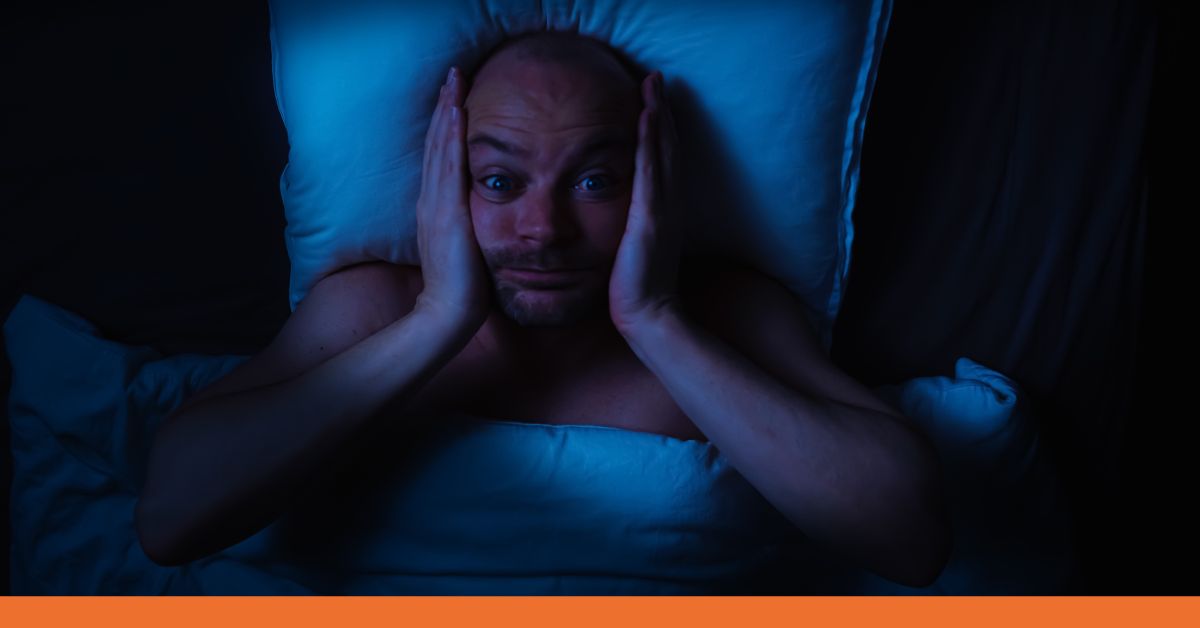Tossing and turning on your bed during your bedtime is normal. But if you’re experiencing it for a prolonged period, you might have a medical condition that needs immediate attention: insomnia.
Insomnia can have drastic effects on your life, and if it’s not addressed correctly, it can lead to more severe health problems. Whether it’s caused by stress on work, finances, or relationships, you should know that lack of quality sleep has severe repercussions on your body, mind, and emotions. However, if the symptoms begin to affect your day-to-day life, it is crucial to consult with a sleep specialist to understand and better address your condition.
Insomnia is a disorder that makes sleeping difficult. It can also affect a person’s ability to stay asleep and not be able to go back to sleep. Our body’s refusal to sleep can result in feelings of fatigue and stress. This sleep disorder is so common that 30% to 40% of American adults report insomnia symptoms annually.
Not getting enough sleep has negative consequences for your physical and emotional well-being. While insomnia itself can be a symptom of some psychiatric disorders like anxiety and depression, experts increasingly recognize it as a factor in developing and progressing other mental health issues such as sadness, anxiety, and even suicidal ideation.
As for physical side effects, insomnia can cause daytime fatigue, irritability, and even gastrointestinal symptoms. Lack of sleep is also attributed to weight gain, leading to serious medical issues if not given proper attention. Insomnia can even cultivate unhealthy habits that may lead to the development of heart disease.
Lack of energy, difficulty remembering things, a shorter attention span, delayed thinking, decreased sex drive, poor decision making, irritability, daytime sleepiness, and other mood changes can result from not getting enough sleep.
For these reasons, you must understand what insomnia is and how it can drastically affect your overall health and well-being. Therefore, the following is some crucial information concerning this sleep condition.

Acute and chronic insomnia are the two most common kinds of insomnia.
Acute insomnia, also known as early insomnia, short-term insomnia, or adjustment insomnia, is a brief period of difficulty sleeping. This type of insomnia occurs due to a stressful or traumatic incident and typically goes away without treatment. Roughly 25% of Americans have acute insomnia, but about 75% of these people recover without developing persistent sleep problems or chronic insomnia.
Here’s an excellent example of an episode of acute insomnia. You may have lost a loved one due to an accident, and stress from such a traumatic event led to unhealthy sleeping habits. But over time, as you move on from grieving their loss, you eventually get back on your feet and return to your regular sleeping habits. This is acute insomnia: a sleeping disorder that comes and goes.
Acute insomnia can continue anywhere from a few days to several months. Symptoms gradually dissipate as the person develops ways to cope with the stressful event that produced the sleeping condition. However, keep in mind that acute insomnia may worsen if not given proper attention and lead to a more severe type of insomnia that leaves you constantly tired and unmotivated.
Short-term sleeping disorders like acute insomnia can happen to children and adults, but it’s more common for women to develop it. It can also arise during pregnancy and a woman’s menopausal stages.

When insomnia lasts for more than three months or even years, it can be categorized as chronic insomnia. Much like acute insomnia, chronic insomnia can also occur because of stress, traumatic life events, or unhealthy habits that disrupt sleep. However, the most prevalent contributor to this type of insomnia is stress, which can drastically affect your daily life in various ways.
When people have chronic insomnia, they feel tired, even after waking up. As a result, they constantly lack the necessary energy to accomplish everyday tasks like taking long walks. Imagine what it feels like to consistently have a lousy sleep for months or years if a night or two without decent sleep can leave a person grumpy.
Chronic insomnia can take a toll on both your mind and body. Long stretches of sleep deprivation can cause extreme mood swings, making you more likely to feel deeper negative emotions like anger and sadness. Chronic insomnia, if left untreated, can develop into severe mood disorders such as clinical depression and anxiety.
A Journal of the American Heart Association research back in 2021 states that insomnia can be a potential risk factor for a highly fatal brain aneurysm. It comes with other risk factors like smoking, high blood pressure, and heavy alcohol consumption. For this reason, anyone with chronic insomnia must deal with the disorder swiftly, or else they face life-threatening medical problems.

Individuals who find it challenging to sleep may have acute or chronic insomnia. The main difference is their duration. Acute insomnia lasts briefly for about weeks or three months, while chronic insomnia may last years. However, they share similar symptoms that usually stem from the exact causes, primarily stress.
Below are the common symptoms of people who have insomnia:
If you’re experiencing these symptoms, then you may have insomnia. Taking steps in dealing with insomnia may be difficult, but every step can make a difference in recovery.

We’ve talked about stress and traumatic events as contributing factors to insomnia, but there are also other factors you need to watch out for. Aside from life-altering events, chemicals can also affect your sleeping habits. Lifestyle choices are also elements that can disrupt your sleeping patterns. Knowing what causes insomnia can help you make better decisions about how to enhance the quality of your sleep.
The Journal of Depression and Anxiety published research about how insomnia treatment plans don’t apply to everyone. The study states that hyperarousal in cognitive, behavioral, neurological, and endocrine systems is linked to insomnia. However, it clearly says that there’s no singular cause for insomnia and that treatment plans aren’t one size fits all.
Your healthcare professional may need to do some tests to rule out any specific health conditions you may have. By doing so, your care provider can properly diagnose if you only have insomnia or if there are other underlying medical issues that you need to deal with simultaneously with insomnia.
Here are the most common causes of insomnia:
The causes of insomnia above are lengthy, and you may be confused about what contributes to your insomnia. For this reason, you should consult a sleep doctor in Connecticut so they can adequately assess your health condition and provide you with a treatment plan catered to your needs.

The quality of your sleep can help dictate how healthy you are physically, mentally, and emotionally. If you’re having difficulty sleeping for prolonged periods, you might have insomnia. Improving your sleep is crucial in transforming your life into a much healthier one. Maintaining proper sleep hygiene is vital to treating and preventing insomnia.
If you’re asking yourself how to treat insomnia, the tips below can help you tremendously.
The tips we’ve listed above are just a few natural methods to enhance your sleep quality dramatically. These tips might be helpful, but it’s still best to consult a sleep doctor first to diagnose your condition properly.
Insomnia is a sleep disorder that can drastically affect the quality of your life. Not only that, but it can also pose some serious health risks. If you’re having difficulty sleeping and you think you have insomnia, consult a sleep doctor in Connecticut to better understand your condition.

During this surge in COVID-19 cases, our primary focus is meeting the high demand for tests, and we are seeing higher than usual wait times. This means we are unable to answer most phone calls. Please know that our teams are working very hard during this time to care for as many patients as safely as possible. Please click the button below for answers to common questions. We appreciate your understanding.